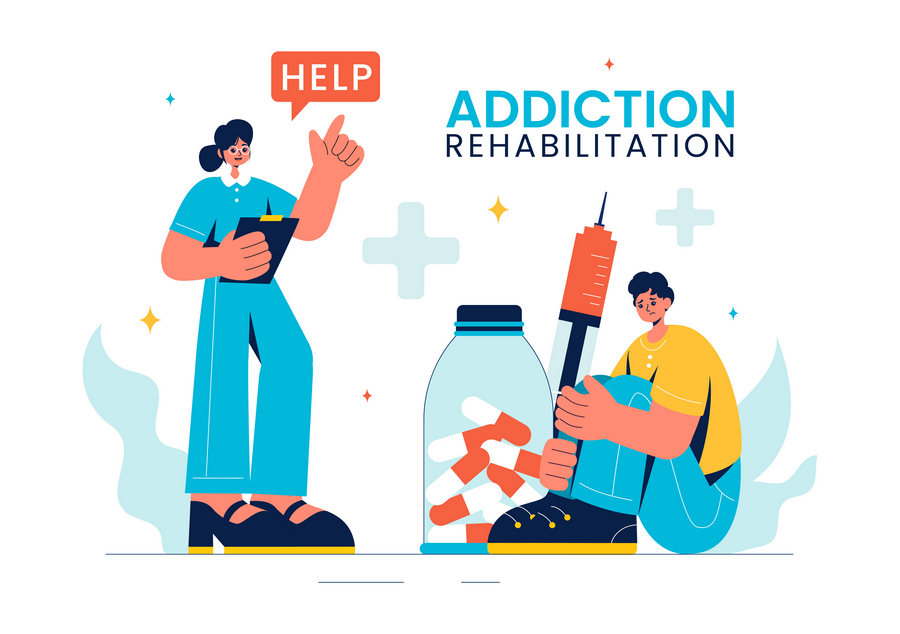7 Powerful Solutions from Punjab Psychiatrist PPP Addiction Partnerships

Punjab psychiatrist PPP addiction partnerships are fast becoming a transformative model in mental health and de-addiction services. With increasing substance use cases across the state, traditional government resources alone have proved insufficient. The answer? A growing number of Public–Private Partnerships (PPP) involving psychiatrists, NGOs, private clinics, and government health institutions. These Punjab psychiatrist PPP addiction models focus on pooling public sector accountability with private sector efficiency. As a result, recovery systems are becoming more responsive, accessible, and professional. Organizations like Prayas Sewa Samiti are instrumental in ensuring that these partnerships reach every level, from grassroots interventions to nasha mukti kendra in India, where recovery begins. Let’s explore seven powerful ways these collaborations are reshaping Punjab’s addiction care ecosystem.
A New Model for Addiction Treatment
1. Punjab Psychiatrist PPP Addiction Programs Are Filling the Treatment Gap
One of the biggest challenges in Punjab’s drug crisis has been the shortage of qualified psychiatrists in public health systems. Most government-run nasha mukti kendras in India lacked trained professionals to diagnose, treat, and support individuals with addiction and dual diagnoses.
With the Punjab psychiatrist PPP addiction model, licensed psychiatrists from private practice now offer services in government de-addiction centers. This reduces the caseload per doctor and improves:
-
Quality of psychiatric assessments
-
Medication management
-
Dual-diagnosis (addiction + mental illness) treatment
-
Personalized treatment plans
This integration ensures that even those at government facilities receive top-tier psychiatric care, regardless of financial status.
2. Streamlined Referrals Between Public and Private Sectors
A vital component of Punjab psychiatrist PPP addiction systems is the referral loop between public health systems and private psychiatric clinics.
Here’s how it works:
-
A patient visits a public hospital or a de-addiction center in India.
-
If they need specialist attention, the government facility refers them to an approved private psychiatrist.
-
These professionals provide timely consultations and report progress back to the public health unit.
-
Once stabilized, the patient continues rehab at the original facility.
This helps avoid fragmentation of care and ensures smooth transitions throughout the treatment pipeline.
Prayas Sewa Samiti plays an active role here—connecting patients, monitoring transitions, and ensuring nobody is lost in the referral maze.

3. Punjab Psychiatrist PPP Addiction Teams Enable Holistic Rehabilitation
Addiction recovery isn’t just about detox—it’s about restoring mental, physical, and emotional well-being. Under the Punjab psychiatrist PPP addiction programs, multidisciplinary teams are being established at district-level hospitals and rehabilitation centers.
These include:
-
A government-nominated counselor
-
A private psychiatrist (under contract)
-
NGO volunteers (like those from Prayas Sewa Samiti)
-
Nutritionists and social workers
Together, they offer:
-
Medication-assisted therapy
-
Cognitive Behavioral Therapy (CBT)
-
Group counseling
-
Family therapy sessions
This collaborative model is now influencing both the government and private nasha mukti kendras in India.
4. Reach in Rural and Underserved Areas
Before Punjab psychiatrist PPP addiction systems, rural rehab centers had no psychiatric professionals. Today, telemedicine and mobile psychiatry teams run by private psychiatrists are bridging that gap.
With Prayas Sewa Samiti’s help:
-
Mobile vans are equipped with tablets for virtual psychiatrist consultations
-
District health workers coordinate with private psychiatrists
-
Follow-ups are documented digitally
-
Patients are guided to the nearest nasha mukti kendra in India for long-term support
This means even in districts like Fazilka or Barnala, people are finally receiving psychiatric care they were previously denied.
5. Reducing Relapse Through Psychiatric Aftercare
Relapse after rehab is common, especially when mental health disorders remain untreated. Punjab psychiatrist PPP addiction collaborations offer structured aftercare services.
Psychiatrists conduct post-rehab follow-ups via:
-
Monthly in-person check-ins
-
WhatsApp-based counseling groups
-
Mood tracking apps with patient logs
-
Scheduled telepsychiatry sessions
These measures, supported by Nasha Mukti Kendra in India, reduce the chances of return to substance use.
Prayas Sewa Samiti also provides peer support groups and self-help sessions, ensuring that every patient has access to community-based safety nets.

6. Capacity Building and Staff Training
Another win from Punjab psychiatrist PPP addiction programs is capacity building.
Psychiatrists involved in PPP projects now lead workshops for:
-
Government doctors unfamiliar with addiction psychiatry
-
Rehab center staff need upskilling
-
Community health workers and ASHA workers
Modules include:
-
Early detection of substance use symptoms
-
Psychiatric first aid for overdose cases
-
Referral protocols to Nasha Mukti Kendra in India
-
Trauma-informed care in addiction
These training sessions, many facilitated by Prayas Sewa Samiti, have increased the state’s capacity to respond more effectively and ethically.
7. Data-Driven Governance Through Collaborative Models
The government now collects anonymized data from Punjab psychiatrist PPP addiction programs to study:
-
Types of addiction (alcohol, opioids, synthetic drugs)
-
Co-occurring disorders (depression, anxiety, psychosis)
-
Geographic hotspots for substance use
-
Rehab completion and dropout rates
This evidence guides:
-
Policy changes
-
Budget allocation for de-addiction services
-
Expansion plans for the nasha mukti kendra in India
With digital health platforms in place, PPP partners contribute data in real-time, enabling smart governance.
Challenges in Punjab Psychiatrist PPP Addiction Models
While promising, these partnerships also face challenges:
-
Shortage of psychiatrists willing to work in rural PPP settings
-
Delayed payments from government bodies
-
Stigma against mental illness and rehab patients
-
Resistance from some private practitioners due to bureaucratic hurdles
Despite these, Prayas Sewa Samiti continues to facilitate dialogue between stakeholders, ensuring these partnerships are sustained and expanded.
Future Directions for Punjab Psychiatrist PPP Addiction Systems
Looking ahead, experts propose:
-
Launching district mental health coordination cells
-
Incentivizing young psychiatrists to join PPP initiatives
-
Introducing AI-based case tracking
-
Integrating PPP frameworks into the existing Nasha Mukti Kendra in India
Prayas Sewa Samiti has submitted proposals to the Ministry of Social Justice & Empowerment to strengthen these models further, ensuring that psychiatric support becomes a pillar of every rehabilitation plan.

Conclusion: A Blueprint for India’s Addiction Recovery Strategy
The Punjab psychiatrist PPP addiction model demonstrates what’s possible when public commitment meets private expertise. It’s a blueprint that can be replicated across India, ensuring that no person with addiction is left untreated due to a lack of psychiatric care.
From filling critical staffing gaps to reducing relapse and expanding rural outreach, these partnerships are redefining recovery.
Prayas Sewa Samiti remains committed to strengthening these collaborations, linking psychiatric care, government infrastructure, and grassroots outreach into a united front against addiction.
Crucially, these public–private psychiatric models are also boosting the effectiveness of the nasha mukti kendra in India. By ensuring that each center has access to psychiatric oversight, timely referrals, and integrated care plans, the entire de-addiction ecosystem becomes more accountable and compassionate.
As more psychiatrists and public institutions embrace this model, and as nasha mukti kendra in India continue to evolve alongside it, the dream of a professional, accessible, and humane addiction care system in Punjab comes closer to reality.